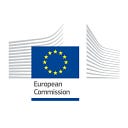Vaccines — everything you need to know!
Vaccines have saved millions of lives. But recently there has been an increase in the number of cases of vaccine-preventable diseases. The EU and the WHO have been working together to promote one message: Vaccines work!

Do you know what smallpox, measles and polio have in common?
Yes, they are dangerous diseases — but we have vaccines to protect us from all of them.
Two of them, smallpox and polio, have been completely eradicated in Europe. But in recent years we’ve seen a rise in the number of cases of vaccine-preventable diseases in several EU and neighbouring countries. The WHO declared vaccine hesitancy as one of the main health threats for 2019.
This is why the EU and the World Health Organization are working together to advocate for vaccines and shine a light on the facts that explain the medical, social and health benefits of vaccines.
Here are four:
1. Vaccines save lives
Vaccines prevent an estimated 2–3 million deaths each year globally. Vaccination is one of the most successful public health measures the world has ever seen.
2. Vaccines are rigorously tested
In the European Union, we have very strict rules for approving vaccines. Both the European Medicines Agency and European Commission evaluate all vaccines before and after they appear on the shelves in your pharmacy.
All the components that make up a vaccine also undergo intense scrutiny to ensure maximum safety in all cases. Complex procedures are in place that have one ultimate aim — your health and wellbeing.
3. We are all in this together!
Overall confidence in vaccines is high among GPs around the EU. It’s important to listen to your doctor’s advice, for your own safety and the safety of those around you.
Another, lesser-known, fact is that some people can’t always be vaccinated (people with certain medical conditions, cancer survivors, young children, etc.). Decreasing rates of vaccination among the rest of us actually put these people at risk of contracting infections. So when you or your child is vaccinated, you also help protect them, by limiting the spread of infections. This is referred to as “herd immunity”.
4. We all have a part to play against vaccine disinformation
A recent EU survey shows about 85% of EU citizens believe vaccination is an effective way to prevent infectious diseases, to protect themselves and others.
Unfortunately, this is not enough. Vaccine hesitancy has led to many people not getting vaccinations for themselves or their children. So, despite the incredible success of vaccination in recent decades, we are now facing unprecedented outbreaks of vaccine-preventable diseases in our countries.
You can help us share the facts about vaccines and counter disinformation. Let us all join forces to raise awareness of one simple fact: Vaccines work!
